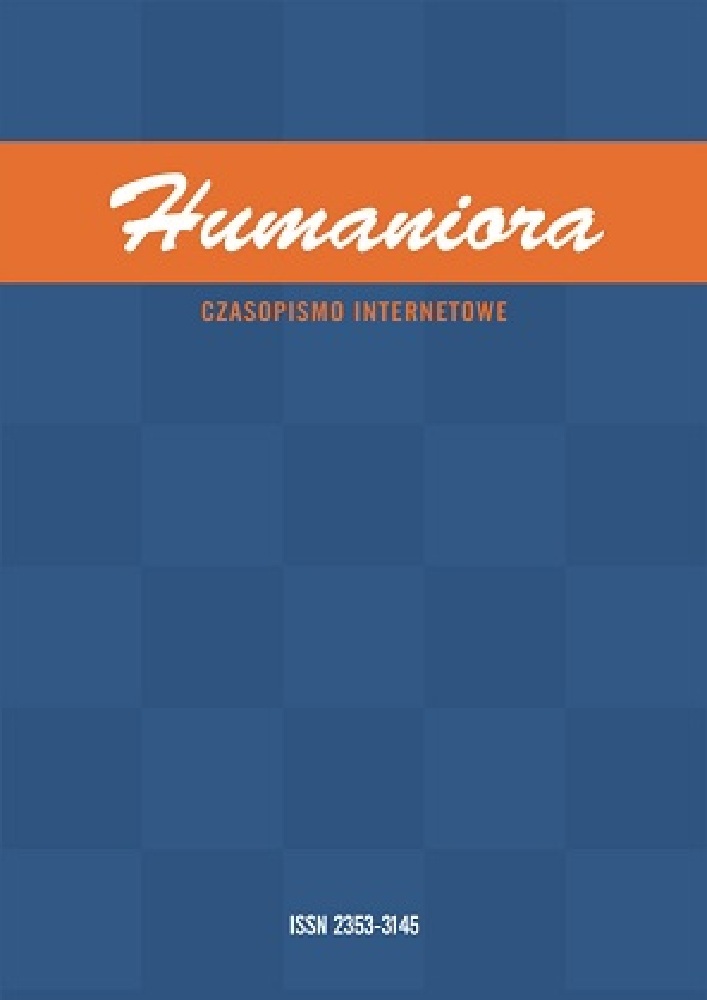Abstrakt
The advice of oppressive freedom in Western culture dates back to ancient times, including those principles of democracy that were implemented in Greek city-states. It changed forms of expression together with Christianity gaining the position of the dominant religion. However, this Christianization over the centuries encountered such unbelievers or infidels who were not willing to subscribe to the Christian conviction that surrendering to the slavery of God and the Church representing Him on earth is the best way to free oneself from various sins. In the 16th and 17th centuries, attempts were made to justify oppressive freedom with earthly needs. In the eighteenth century, however, such social forces came to the fore, which, regardless of the existing beliefs, implemented its form, which in the final phase was primarily terror. It was Jacobin oppressive freedom. Later, various political forces in Western Europe distanced themselves from it, but in Eastern Europe they added their card to it under the title – communist terror.
Bibliografia
Andress D., The Terror: The Merciless War for Freedom in Revolutionary France, Farrar, Straus, and Giroux Press, New York 2006.
Baszkiewicz J., Historia Francji, Ossolineum, Wrocław–Warszawa–Kraków 2004.
Belford Bax E., Jean-Paul Marat; The People’s Friend, A Biographical Sketch, Forgotten Books, London 2018.
Brunel F., Thermidor: la chute de Robespierre, Éditions Complexe, Paris 1989.
Conner C.D., Jean Paul Marat: scientist and revolutionary, Amherst College Press, New York 1999.
Constant B., De l’esprit de conquete, w: Oevres texte, Pléiade No. 123, Paris 1957.
Courtois S. i in., Czarna księga komunizmu, Zbrodnie, terror, prześladowania, Prószyński i S-ka, Warszawa 1999.
Czarna księga komunizmu. Zbrodnie, terror, prześladowania, ed. S. Courtois i in., Prószyński i S-ka, Warszawa 1999.
Duval M., Émile Faguet, le Critique, le Moraliste, le Sociologue, Société Française d’Imprimerie et de Libraire, Paris 1911.
Fremont-Barnes G., Encyclopedia of the age of political revolutions and new ideologies, 1760–1815: vol. 1, Greenwood Press, Westport (USA) 2007. DOI: https://doi.org/10.5040/9798216193630
Hampson N., The Life and Opinions of Maximilien Robespierre, Duckworth Press, London 1974.
Hobbes Th., Lewiatan czyli Materia, forma i władza państwa kościelnego i świeckiego, PWN, Warszawa 1954.
Larkin M., Religion, Politics and Preferment in France since 1890: La Belle Epoque and its Legacy, Cambridge University Press, Cambridge 2002.
Lebrun R., The Satanic Revolution: Joseph de Maistre’s Religious Judgment of the French Revolution, w: Proceedings of the Annual Meeting of the Western Society for French History, vol. 16, New Mexico State University Press, Las Cruces 1989.
Les déclarations des droits de l’homme de 1789, ed. C. Fauré, Éditions Payot, Paris 1988.
Machiavelli N., Wybór pism, PIW, Warszawa 1972.
Maistre J. de, Wieczory petersburskie. O doczesnym panowaniu Opatrzności, Wydawnictwa Uniwersytetu Warszawskiego, Warszawa 2020.
Manent P., Intelektualna historia liberalizmu, Arcana, Kraków 1994.
Robespierre M., Oeuvres de Maximilien Robespierre, vol. IX, PUF, Paris 1958.
The Cambridge Companion to Constant, ed. H. Rosenblatt, Cambridge University Press, Cambridge 2009.
Scurr R., Fatal Purity: Robespierre and the French Revolution, Macmillan Press, New York 2006.
Thiers A., La Monarchie de 1830, Nabu Press, Charleston (USA) 2012.
Zahorski A., Napoleon, PIW, Warszawa 1982.
Licencja
Prawa autorskie (c) 2023 Zbigniew Drozdowicz

Utwór dostępny jest na licencji Creative Commons Uznanie autorstwa – Bez utworów zależnych 4.0 Międzynarodowe.
Czasopismo oraz wszystkie zamieszczone w nim materiały są powszechnie dostępne i mogą być wykorzystywane do celów naukowych, edukacyjnych, poznawczych i niekomercyjnych bez konieczności uzyskiwania każdorazowej zgody autorów i redakcji. Nadesłanie artykułu do publikacji traktowane jest jako zgoda autora na udostępnienie swojej pracy i informacji w niej zawartych do powyżej wymienionych celów. W takich przypadkach należy jedynie wskazać źródło, z którego zaczerpnięte zostały informacje. Pobieranie opłat za dostęp do materiałów zawartych w czasopiśmie lub ograniczanie do niego dostępu jest zabronione.
Przesyłane do redakcji teksty muszą stanowić oryginalne prace, uprzednio nigdzie niepublikowane ani nie przedkładane innym redakcjom lub wydawcom. Autorzy nadsyłanych artykułów ponoszą odpowiedzialność za uzyskanie zezwoleń na publikowanie materiałów, do których prawa autorskie są w posiadaniu osób trzecich. Publikacja materiałów chronionych prawem autorskim jest możliwa pod warunkiem uprzedniego dostarczenia przez autora do redakcji pisemnej zgody właściciela praw autorskich.





